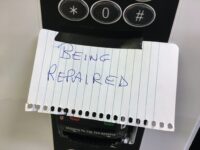The right to repair would seem like a political no-brainer: a policy designed to extend the life of devices and equipment and the ability to innovate for the benefit of consumers and the environment. Yet somehow copyright law has emerged as a barrier on that right, limiting access to repair guides and restricting the ability for everyone from farmers to video gamers to tinker with their systems. The government has pledged to address the issue and Bill C-244, a private members bill making its way through the House of Commons, would appear to be the way it plans to live up to that promise.
Alissa Centivany, an assistant professor in the faculty of information and media studies at Western University and the principal investigator of a SSHRC-funded research project on the right to repair and Anthony Rosborough, who completing his doctoral thesis at the European University Institute in Florence and is set to take up a joint appointment in Law and Computer Science at Dalhousie University later this year, have been two of the most outspoken experts on this issue in Canada. They join me on the Law Bytes podcast to talk about why the time has come for government action, their experience before a House of Commons committee on the bill, and unpack some of the confusion arising from late breaking amendments.









